Hunting Zero Read online
Page 3
He quickly stuffed a bag with a couple changes of clothes. He did not know how long he would be gone, how far he would have to go. To the ends of the earth, if necessary.
He switched out his sneakers for boots. He left his wallet in his top dresser drawer. In his closet, stuffed deep in the toe of a pair of black dress shoes, was a wad of emergency cash, nearly five hundred dollars. He took it all.
Atop his dresser was a framed photo of the girls. His chest grew tight just looking at it.
Maya had her arm around Sara’s shoulders. Both girls were smiling wide, seated across from him at a seafood restaurant as he took their picture. It was from a family trip to Florida the previous summer. He remembered it well; he had snapped the photo mere moments before their food arrived. Maya had a virgin daiquiri in front of her. Sara had a vanilla milkshake.
They were happy. Smiling. Content. Safe. Before he had brought any of this terror down upon them, they were safe. At the time this photo was taken, the very notion of ever being pursued by radicals intent to harm them, kidnapped by murderers, was the stuff of fantasy.
This is your fault.
He flipped the frame over and tore open the back. As he did, he made himself a promise. When he found them—and I will find them—he would be done. Done with the CIA. Done with covert operations. Done with saving the world.
To hell with the world. I just want my family to be safe and kept safe.
They would leave, move far away, change their names if they needed to. All that would matter for the rest of his life would be their safety, their happiness. Their survival.
He took the photo from the frame, folded it in half, and tucked it into his inside jacket pocket.
He would need a gun. He could probably find one in Thompson’s house, just next door, if he could manage to slip in without the police or emergency personnel seeing—
Someone cleared their throat loudly in the hall, an obvious warning sign meant for him in case he needed a moment to compose himself.
“Mr. Lawson.” The man stepped into the bedroom doorway. He was short, soft in the middle, but had hard lines etched in his face. He reminded Reid a little of Thompson, though that could have just been guilt. “My name is Detective Noles, with the Alexandria Police Department. I understand this is a very difficult time for you. I know you’ve already given a statement to the first-responding officers, but I have some follow-up questions for you that I’d like to be on the record, if you would please come with me down to the precinct.”
“No.” Reid took up his bag. “I’m going to find my girls.” He marched out of the room and past the detective.
Noles followed quickly. “Mr. Lawson, we strongly discourage citizens from taking any action in a case like this. Let us do our jobs. The best thing for you to do would be to stay somewhere safe, with friends or family, but close by…”
Reid paused at the bottom of the stairs. “Am I a suspect in the kidnapping of my own daughters, Detective?” he asked, his voice low and hostile.
Noles stared. His nostrils flared briefly. Reid knew his training dictated that this sort of situation be handled delicately, as not to further traumatize victims’ families.
But Reid was not traumatized. He was angry.
“As I said, I just have a few follow-up questions,” Noles said carefully. “I’d like you to come with me, down to the precinct.”
“I reject your questions.” Reid stared back. “I’m going to get in my car now. The only way you’re taking me anywhere is in handcuffs.” He very much wanted this stout detective out of his face. For a brief moment he even considered mentioning his CIA credentials, but he had nothing on him to back it up.
Noles said nothing as Reid turned on his heel and strode out of the house to the driveway.
Still the detective followed, out the door and across the lawn. “Mr. Lawson, I’m only going to ask you once more. Consider for a second how this looks, you packing a bag and running off while we’re actively investigating your home.”
A white-hot jolt of anger ran through Reid, from the base of his spine up to the top of his head. He very nearly dropped his bag right there, so much was his desire to turn and deck Detective Noles across the jaw for even remotely implying that he might have had a hand in this.
Noles was a veteran; he must have been able to read the body language, but still he pressed on. “Your girls are missing and your neighbor is dead. All this happened while you weren’t home, yet you don’t have a solid alibi. You can’t tell us who you were with or where you were. Now you’re running off like you know something we don’t. I have questions, Mr. Lawson. And I will get answers.”
My alibi. Reid’s actual alibi, the truth, was that he had spent the last forty-eight hours running down a crazed religious leader who was in possession of an apocalypse-sized batch of mutated smallpox. His alibi was that he just got home from saving millions of lives, perhaps even billions, only to find that the two people he cared most about in this entire world were nowhere to be found.
But he couldn’t say any of that, no matter how much he wanted to. Instead, Reid forced his rage down and held back both his fist and his tongue. He paused alongside his car and turned to face the detective. As he did, the shorter man’s hand moved slowly to his belt—and his handcuffs.
Two uniformed officers milling about outside noticed the potential altercation and took a few cautious steps closer to him, hands also moving to their belts.
Ever since the memory suppressor had been cut from his head, it felt like Reid was of two minds. One side, the logical, Professor Lawson side, was telling him: Back down. Do as he asks. Or else you’ll find yourself in jail and you’ll never get to the girls.
But the other side, the Kent Steele side of him—the secret agent, the renegade, the thrill-seeker—it was much louder, shouting, knowing from experience that every second counted desperately.
That side won out. Reid tensed, ready for a fight.
CHAPTER FOUR
For what felt like a long moment, no one moved—not Reid, not Noles, not the two cops behind the detective. Reid clung to his bag in a white-knuckled grip. If he tried to get in the car and leave, he had no doubt the officers would advance on him. And he knew he would react accordingly.
Suddenly there was the screech of tires and all eyes turned toward a black SUV as it came to an abrupt halt at the end of the driveway, perpendicular to Reid’s own vehicle, blocking him in. A figure stepped out and strode quickly over to defuse the situation.
Watson? Reid nearly blurted it out.
John Watson was a fellow field agent, a tall African-American man whose features were perpetually passive. His right arm was suspended in a dark blue sling; he had caught a stray bullet to the shoulder only the day prior, assisting on the op to stop Islamic radicals from releasing their virus.
“Detective.” Watson nodded to Noles. “My name is Agent Hopkins, Department of Homeland Security.” With his good hand he flashed a convincing badge. “This man needs to come with me.”
Noles frowned; the tension of the moment before had evaporated, replaced by confusion. “Say what now? Homeland Security?”
Watson nodded gravely. “We believe the abduction has something to do with an open investigation. I’m going to need Mr. Lawson to come with me, right now.”
“Now hang on.” Noles shook his head, still thrown by the sudden intrusion and rapid explanation. “You can’t just barge in here and take over—”
“This man is a department asset,” Watson interrupted. He kept his voice low, as if sharing a conspiratorial secret, though Reid knew it was CIA subterfuge. “He’s WITSEC.”
Noles’s eyes widened to the point it looked like they might fall out of his head. WITSEC, Reid knew, was an acronym for the witness protection program of the US Department of Justice. But Reid said nothing; he simply folded his arms over his chest and shot the detective a pointed glare.
“Still…” Noles said hesitantly, “I’m going to need more to go on here
than a flashy badge…” The detective’s cell suddenly blared a ringtone.
“I assume that will be your confirmation from my department,” said Watson as Noles reached for his phone. “You’re going to want to take that. Mr. Lawson, this way, please.”
Watson strode away, leaving a befuddled Detective Noles stammering into his cell. Reid hefted his bag and followed, but he paused at the SUV.
“Wait,” he said before Watson could climb into the driver’s seat. “What is this? Where are we going?”
“We can talk while we drive, or we can talk now and waste time.”
The only reason Reid could conceive of for Watson being there was if the agency sent him, with the intent of picking up Agent Zero so they could keep an eye on him.
He shook his head. “I’m not going to Langley.”
“Neither am I,” Watson replied. “I’m here to help. Get in the car.” He slid into the driver’s seat.
Reid hesitated for a brief moment. He needed to be on the road, but he had no destination. He needed a lead. And he had no reason to believe he was being lied to; Watson was one of the most honest and by-the-books agents he’d ever met.
Reid climbed into the passenger’s seat beside him. With his right arm in a sling, Watson had to reach over his body to shift and he steered with one hand. They pulled away in seconds, doing about fifteen over the speed limit, moving quickly but avoiding scrutiny.
He glanced over at the black bag in Reid’s lap. “Where were you planning on going?”
“I have to find them, John.” His vision blurred at the thought of them out there, alone, in the hands of that murderous madman.
“On your own? Unarmed, with a civilian cell phone?” Agent Watson shook his head. “You should know better.”
“I already talked to Cartwright,” Reid said bitterly.
Watson scoffed. “You think Cartwright was standing alone in the room when he spoke with you? You think he was on a secure line, in an office at Langley?”
Reid frowned. “I’m not sure I follow. It sounds like you’re suggesting that Cartwright wants me to do the thing he just told me not to do.”
Watson shook his head, not taking his eyes off the road. “It’s more that he knows you’re going to do the thing he just told you not to do, whether he wants you to or not. He knows you better than most. The way he sees it, the best way to avoid another problem is to make sure you have some support this time around.”
“He sent you,” Reid murmured. Watson neither confirmed nor denied it, but he didn’t have to. Cartwright knew that Zero was going after his girls; their conversation had been for the benefit of other ears at Langley. Still, knowing Watson’s penchant for adherence to protocol, it didn’t make sense to Reid why he would help. “What about you? Why are you doing this?”
Watson merely shrugged. “There are a couple of kids out there. Scared, alone, in bad hands. I don’t like that much.”
It wasn’t really an answer, and it might not have even been the truth, but Reid knew it was the best he was going to get out of the stoic agent.
He couldn’t help but think that part of Cartwright’s acquiescence to help him was some measure of guilt. Twice while he was away Reid had asked the deputy director to put his girls in a safe house. But instead the deputy director made excuses about manpower, about a lack of resources… And now they’re gone.
Cartwright could have avoided this. He could have helped. Again Reid felt his face grow hot as a surge of anger rose up within him, and again he stifled it down. Now wasn’t the time for that. Now was the time to go after them. Nothing else mattered.
I’m going to find them. I’m going to get them back. And I am going to kill Rais.
Reid took a deep breath, in through his nose and out through his mouth. “So what do we know so far?”
Watson shook his head. “Not much. We just found out right after you did, when you called the cops. But the agency is on it. We should have a lead shortly.”
“Who’s on it? Anyone I know?”
“Director Mullen gave it to Spec Ops, so Riker is taking lead…”
Reid found himself scoffing aloud again. Less than forty-eight hours earlier, a memory had returned to Reid, one from his former life as Agent Kent Steele. It was still foggy and fragmented, but it was about a conspiracy, some sort of government cover-up. A pending war. Two years ago, he had known about it—had at least known some part of it—and had been working to build a case. Regardless of how little he knew, he was certain that at least a few members of the CIA were involved.
At the top of his list was newly appointed Deputy Director Ashleigh Riker, head of Special Operations Group. And his lack of trust in her notwithstanding, he definitely didn’t expect she would put her best foot forward in finding his children.
“She assigned a new guy, young, but capable,” Watson continued. “Name’s Strickland. He’s a former Army Ranger, excellent tracker. If anyone could find who did this, it’d be him. Other than you, that is.”
“I know who did this, John.” Reid shook his head bitterly. He immediately thought of Maria; she was a fellow agent, a friend, maybe more—and definitively one of the only people Reid could trust. Last he’d heard, Maria Johansson was on an op tracking Rais into Russia. “I need to contact Johansson. She should know what’s happened.” He knew that until he could prove it was Rais, the CIA wouldn’t pull her back.
“You won’t be able to—not while she’s in the field,” Watson replied. “But I can try to get word to her another way. I’ll have her call you when she’s able to find a secure line.”
Reid nodded. He didn’t like not being able to contact Maria, but he had little choice. Personal phones were never carried on ops, and the CIA would likely be monitoring her activity.
“Are you going to tell me where we’re going?” Reid asked. He was getting anxious.
“To someone who can help. Here.” He tossed Reid a small silver flip phone—a burner, one that the CIA couldn’t trace unless they knew about it and had the number. “There are a few numbers programmed in there. One’s a secure line to me. Another’s to Mitch.”
Reid blinked. He didn’t know a Mitch. “Who the hell is Mitch?”
Instead of answering, Watson pulled the SUV off the road and into the drive of an auto body shop called the Third Street Garage. He eased the vehicle right into an open garage bay and parked. As soon as he cut the ignition, the garage door rumbled slowly down behind them.
They both climbed out of the car as Reid’s eyes adjusted to the relative darkness. Then the lights flickered on, bright fluorescent bulbs that made dots swim in his vision.
Beside the SUV, in the second garage bay, was a black car, a late eighties model Trans Am. It wasn’t much younger than he was, but the paint job looked glossy and new.
Also in the garage bay with them was a man. He wore dark blue coveralls that barely concealed spattered grease stains. His features were obscured by a tangled mass of brown beard and a red baseball cap pulled low over his forehead, the brim of it discolored with dried sweat. The mechanic slowly wiped his hands on a filthy, oil-stained rag, staring at Reid.
“This is Mitch,” Watson told him. “Mitch is a friend.” He tossed a ring of keys to Reid and gestured to the Trans Am. “It’s an older model, so there’s no GPS. It’s reliable. Mitch has been fixing it up for the last few years. So try not to destroy it.”
“Thanks.” He had been hoping for something more inconspicuous, but he would take what he could get. “What is this place?”
“This? This is a garage, Kent. They fix cars here.”
Reid rolled his eyes. “You know what I mean.”
“The agency’s already trying to get eyes and ears on you,” Watson explained. “Any way they can track you, they will. Sometimes in our line of work you need… friends on the outside, so to speak.” He gestured again toward the burly mechanic. “Mitch is a CIA asset, someone I recruited from my days in the National Resources Division. He’s an expert at, uh, �
�vehicle procurement.’ If you need to get somewhere, you call him.”
Reid nodded. He didn’t know that Watson had been in asset collection prior to being a field agent—though, to be fair, he wasn’t even sure that John Watson was his real name.
“Come on, I got some things for you.” Watson popped the trunk and unzipped a black canvas duffel bag.
Reid took a step back, impressed; inside the bag was an array of supplies, including recording devices, a GPS tracking unit, a frequency scanner, and two pistols—a Glock 22, and his backup of choice, the Ruger LC9.
He shook his head in disbelief. “How did you get all this?”
Watson shrugged one shoulder. “Had a bit of help from a mutual friend.”
Reid didn’t have to ask. Bixby. The eccentric CIA engineer who spent most of his waking hours in a subterranean research and development lab beneath Langley.
“You and him go way back, even if you don’t remember it all,” Watson said. “Although he made sure to mention that you still owe him some tests.”
Reid nodded. Bixby was one of the co-inventors of the experimental memory suppressor that had been installed in his head, and the engineer had asked if he could run a few tests on Reid’s head.
He can open my skull if it means getting my girls back. He felt another overwhelming, powerful wave of emotion crash over him, knowing that there were people willing to break the rules, to put themselves in harm’s way to help him—people he could barely remember even having a relationship with. He blinked back the threat of tears that stung his eyes.
“Thank you, John. Really.”
“Don’t thank me yet. We’ve barely begun.” Watson’s phone rang in his pocket. “That’ll be Cartwright. Give me a minute.” He retreated to a corner to take the call, his voice low.
Reid zipped the bag closed and slammed the trunk shut. As he did, the mechanic grunted, making a sound somewhere between clearing his throat and muttering something.
“Did… did you say something?” Reid asked.
“Said sorry. ’Bout your kids.” Mitch’s expression was well hidden behind his grizzled beard and baseball cap, but his voice sounded genuine.

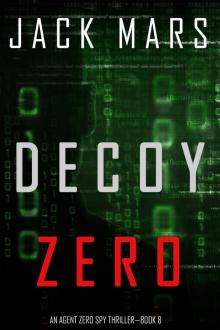 Decoy Zero
Decoy Zero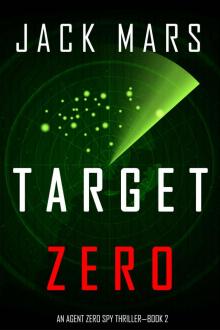 Target Zero
Target Zero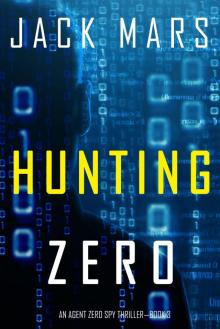 Hunting Zero
Hunting Zero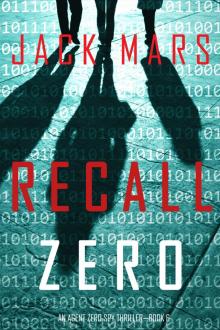 Recall Zero
Recall Zero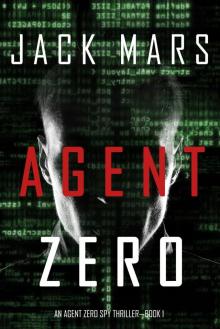 Agent Zero
Agent Zero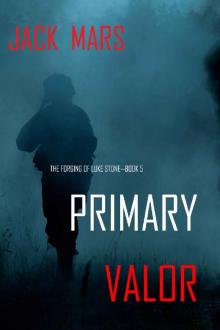 Primary Valor
Primary Valor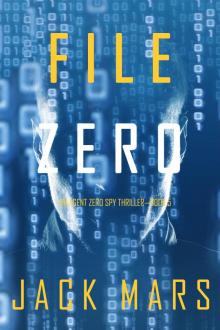 File Zero
File Zero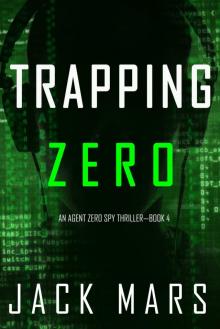 Trapping Zero
Trapping Zero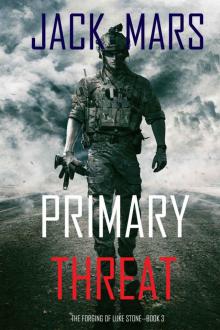 Primary Threat
Primary Threat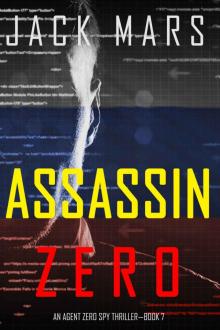 Assassin Zero
Assassin Zero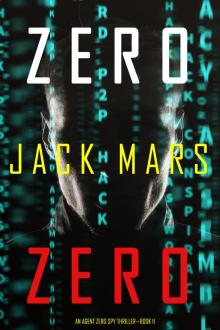 Zero Zero
Zero Zero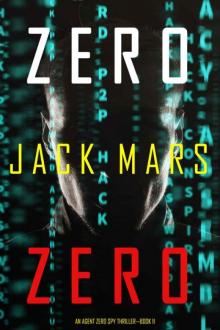 Zero Zero (An Agent Zero Spy Thriller—Book #11)
Zero Zero (An Agent Zero Spy Thriller—Book #11)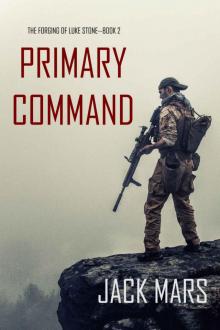 Primary Command
Primary Command![[Luke Stone 02.0] Oath of Office Read online](http://i1.bookreadfree.com/i/03/21/luke_stone_02_0_oath_of_office_preview.jpg) [Luke Stone 02.0] Oath of Office
[Luke Stone 02.0] Oath of Office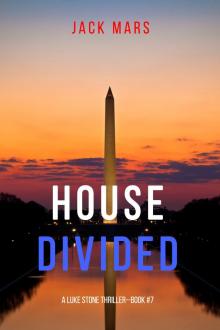 House Divided
House Divided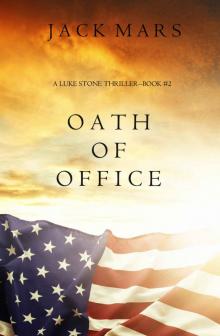 Oath of Office (a Luke Stone Thriller—Book #2)
Oath of Office (a Luke Stone Thriller—Book #2) Our Sacred Honor (A Luke Stone Thriller—Book 6)
Our Sacred Honor (A Luke Stone Thriller—Book 6)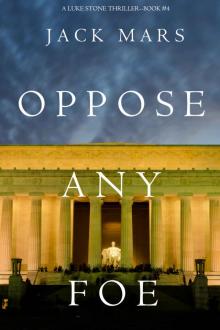 Luke Stone 04 - Oppose Any Foe
Luke Stone 04 - Oppose Any Foe Our Sacred Honor
Our Sacred Honor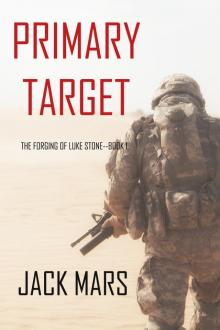 Primary Target
Primary Target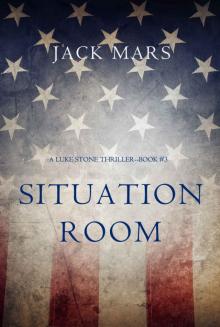 Luke Stone 03 - Situation Room
Luke Stone 03 - Situation Room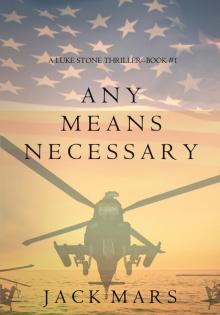 Any Means Necessary: A Luke Stone Thriller (Book 1)
Any Means Necessary: A Luke Stone Thriller (Book 1)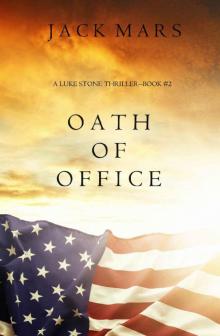 Oath of Office
Oath of Office